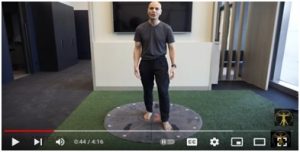There is Level 1 evidence that exercise is an effective intervention strategy for fall prevention in seniors. However, it is generally assumed that the benefits of exercise are due to improved balance and muscle control helping to reduce the risk of falls, but is there more to the story?
Falls often happen due to a combination of impaired balance and impaired cognition since movement also requires attending to all relevant environmental stimuli.
This study proposes that improved cognitive function may be an under-appreciated mechanism by which exercises reduce the risk of falls in seniors.
Several studies have shown that both aerobic and resistance exercises have the long-term benefit of enhancing cognition in seniors.
Basically, when we prescribe various exercises to our senior population and typically tell them that, “the purpose of these exercises is to improve your balance”, which is partially true, we should also add that, “another important benefit of these exercises is to improve your awareness, meaning your ability to be more alert of your surrounding and potential obstacles and your ability make decisions quickly should you come across an obstacle as you’re walking.”.
My personal favorite exercise to prescribe is the STARmat clock steps. Please see at least the first minute of my video explaining it. As patients do the clock steps, I also intentionally and humorously “push them” to set them off balance while we both giggle and laugh. I know I am biased, but I strongly recommend the STARmat for every clinic!


